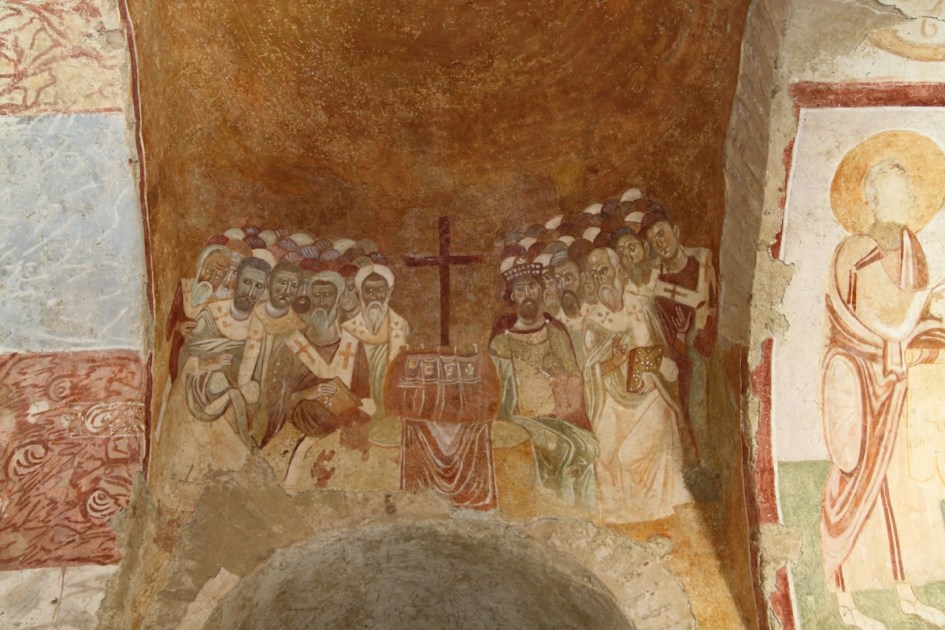The exact dates of the Council of Nicaea are debated. However, May 20 is celebrated as the anniversary of the opening and July 25 as the closing.
We know it opened in the late spring and ended in the summer, in July or August, of the year 325, in what is the city of Iznik, in modern-day Turkey.
Emperor Constantine was the one who called the Council.
Pope Sylvester I (pope from 314 to 335) was represented by delegates. Tradition holds that 318 bishops were there (find out why that number here), so that it is considered by Christian churches to be the first ecumenical council — called “ecumenical” precisely because it brought together the oikoumene (in Greek), that is, the whole inhabited earth.
Celebrating the anniversary of this Council is momentous because it was held at a time when Christianity was united (that is, before the Great Schism of 1054 that divided the East (Orthodox) and West, and prior to the Protestant Reformation.)
A papal trip to Nicaea
Pope Francis had planned to go to Turkey to celebrate the anniversary with Orthodox Patriarch Bartholomew. A date for the trip was never announced, but it was expected to have taken place in May of 2025. However, with Francis’ passing in April, those dates had to be postponed.
Pope Leo already assured, in his May 12 meeting with media right after election, that he’s intending to take up Francis’ plans.
He’s reiterated it since, including as recently as July 17, when he met with a pilgrimage of American Orthodox and Catholics at Castel Gandolfo.
Work for unity
What can be affirmed about Pope Leo, based on his motto, is that he is a pope of unity.
On the Vigil of the feast of Sts. Peter and Paul, he spoke of his intentions regarding working for unity with the Orthodox Churches:
“As I think back with gratitude on the progress made thus far, I assure you of my desire to persevere in the effort to restore full visible communion between our Churches.” He said this to a delegation from the Ecumenical Patriarchate of Constantinople, sent by Orthodox Patriarch Bartholomew.
He’s already spoken of Nicaea’s role in shaping the Church of the future. On June 7, he addressed a symposium called “Nicaea and the Church of the third millennium: Towards Catholic-Orthodox Unity,” saying that “The Council of Nicaea is not merely an event of the past but a compass that must continue to guide us towards the full visible unity of Christians.”
“It is my hope that the preparation and joint commemoration of the 1700th anniversary of the Council of Nicaea will be a providential occasion ‘to deepen and confess together our faith in Christ and to put into practice forms of synodality among Christians of all traditions,'” he added.
Immediate future and years to come
Any papal trip involves accords at political levels and practical organization, and Pope Leo’s trip to Turkey has not been formally announced (it hadn’t been under Francis either.)
However, Patriarch Bartholomew has indicated it could happen on the November 30 feast of St. Andrew.
Andrew, brother of Peter, evangelized to the east and he is recognized as the founder of the See of Byzantium-Constantinople. Bartholomew is thus considered his successor.
Find more Nicaea information and commentary here.
